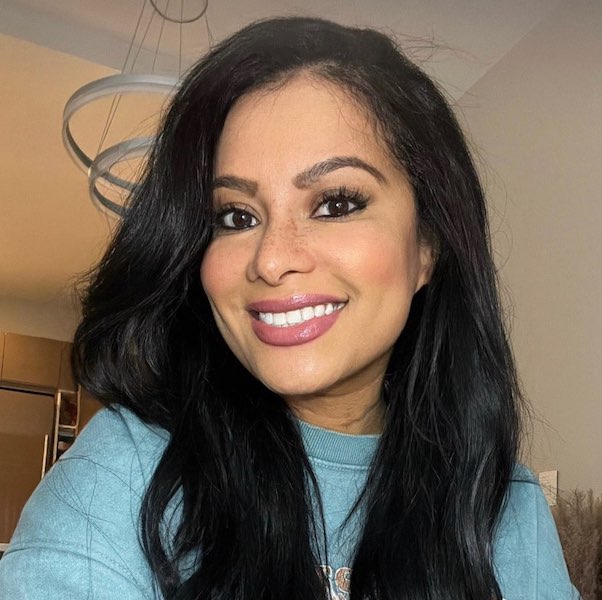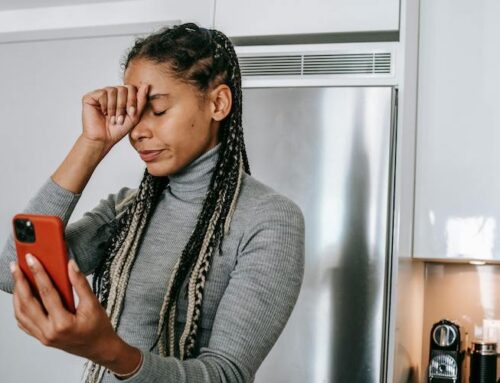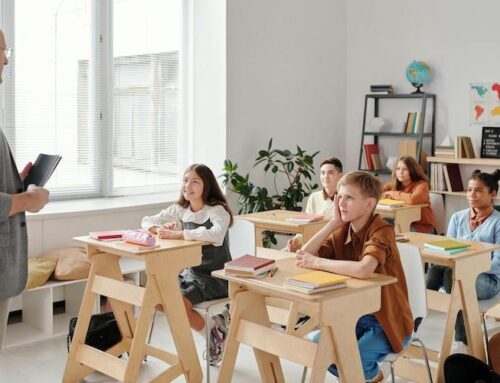As a Recovery Coach and Companion Raquel Herrera, RCP, supports the well-being of her clients who struggle with behavioral health and/or substance misuse issues by providing guidance with setting achievable goals, living a healthy lifestyle and enhancing communication skills. We spoke with Raquel about what it’s like working with families as a part of her practice.
RCNY: Thanks so much for taking the time to talk to us today, tell us something about your coaching style.
RH: I’m able to get along with all ages, all demographics because not only am I a people person, I’m a very understanding person. I don’t come from a place of judgement or shame. I can work with anyone. No matter their past history and current struggles I find that I can relate to their feelings. I really care about my clients.
My coaching style is I meet them where they are, and that means if a client is struggling with substance misuse but does not like AA, which has happened, I’m not going to push it on them. I’m a big AA person, AA saved my life, but there are other ways. There’s SMART recovery, there is Dharma. Some people just don’t want to do any program so I do not push them. In my experience when you push someone they end up resenting you and it’s not genuine, they’re doing it because you’re telling them to. It’s rare that you push someone to do AA and they actually like it.
RCNY: What about your clients who resist doing any of the programs?
RH: I believe in self-esteemable acts like volunteering. There are so many different volunteer programs for so many different age ranges. If they don’t want to volunteer, I’m a big believer in movement: yoga, going for a walk, a spin class. If they don’t want to do that then we start looking at what they are interested in. Are they creative, let’s do some sort of arts and crafts. Are they interested in going back to school, did they leave a degree behind that they want to finish, let’s look at that.
RCNY: Tell us about your work with families and kids.
RH: Families and kids, I am now experiencing working with families that have younger children. For example let’s say the client is 14 or 15, they might have an 11 year old sibling – who normally I didn’t see before the pandemic – who is now in the picture. Now we have to make sure that the 11 year old is not picking up the same patterns as the older sibling. Working with families in general is one of the most challenging parts of the job.
RCNY: Why is that?
RH: Many families, they want the client to do the work and they want everything to change that way, but it doesn’t work like that. I heard a story about a family of plants that’s a really good comparison. All of the plants are sick but the little one is the sickest plant. This little plant is picked up and taken out for 30 days to get better. While the little plant is away the other plants stay sick. The little plant comes back from getting better and is put right back into where all the sick plants are. So what happens? The other plants around it didn’t get better so this little plant is going to get sick again.
Everyone has to do the work. I don’t know why but not everybody wants to do it. It’s so much harder for the client to get better unless everybody is helping. So much of this is behavior and changing how we react to people and things and situations around us. Let’s say the client is in sobriety trying to get better, but they go backwards in their recovery and start yelling and cursing at Mom and Dad. Instead of yelling and cursing back, Mom and Dad need the tools to be able to react like okay, my child is sick right now, let me have compassion for them. Let me have love and tolerance. Everyone involved needs to get better. Not just the sick plant, all the plants around it. It’s a family disease.
RCNY: How do you work with families as a whole?
RH: I work with the whole team. I’ve had big teams, I’ve had small teams. There’s a therapist, a psychiatrist. There could be an addiction therapist, a trauma therapist, it’s definitely not a one person job.
RCNY: What’s the hardest part of working with families?
RH: The hardest part is that they really expect you to come in and fix their child. If this person has been misusing substances for a few years or even for a few months it’s not just about the substance it’s about the behavior and the patterns. The whole family needs to realize that. And I cannot come in and fix this person. The reason I do my program every day is because everyday we have to work at this, everyday we have to do something. We all have good days and bad days. This is not a linear process, it’s a roller coaster. I want families to realize that one day your child may be doing great and the next day they may be in an awful mood. That doesn’t mean they relapsed, that means life happens and they need you. They need your support.
RCNY: And the best part of working with families?
RH: Oh, to see them, when you see it working, to see them unite. This disease tears families apart but it also brings them back together. It’s really, really beautiful when you see a family who was just completely torn and their relationships became toxic because of this disease that just came into their house and caused this big tornado. But then you see everyone working together, and then you see them slowly, little by little, the ones that do the work, you see them coming together. Going to dinner, going on weekend trips together, things that they haven’t done since the client was a young kid.
RCNY: Do you have a trick for communicating with adolescents?
RH: (Laughs) Yeah. I’m really so young at heart I almost feel like I’m an adolescent sometimes when I’m with them. I like being on their level of joking, I like to joke around. But I am also very firm and serious, that’s my style and that’s how I am when I coach. I’ll joke around with the client but then I am firm, I bring the focus back to why we’re here, and it works. I’m not their friend. They can tell me anything but I’m not their friend.
RCNY: What happens when you’re working with a family and your client is resistant to help?
RH: Oh that’s happened, that’s definitely happened. There’s been cases where the client is resistant because they’re actively using and either they went detox or someone at a higher level intervened. Then there’s the client who’s sober and doesn’t want the help. So what I say is look, I’m already here, if you don’t want to talk about anything that’s fine we don’t have to. Then I’ll say what’s your favorite show? Let’s put it on, let’s watch it. And then I’ll get them talking, I get them to talk about their interests and let them see that I’m not the bad guy. They always think they’re having a babysitter. I want them to see I’m there to help them, so I build a rapport like that. And then I tell them we don’t have to talk about any of the things that their Mom and Dad want me here for, and then eventually they do talk about it.
RCNY: What’s your method for helping clients set and achieve goals?
RH: Setting goals, I like to work with the individual’s team when working on goal setting, including the psychiatrist, therapist and Mom and Dad. Parents come in with their list of goals for the client and it’s often unrealistic. They want their child who has been using everyday to all of a sudden to get a job, go to school, volunteer. I tell them this is too much, your child will burn out. I’m very big on realistic goals. There’s just so much going on when we’re getting sober, a lot of us are still in pause. Volunteer, fine, let’s start with that. That will really give them the responsibility of showing up and being around other people.
I like to find out where the client wants to volunteer, I do not want them to be any more miserable. They’re already mourning the loss of friendships and relationships and going through a bunch of things they have to fix in life. This is a tough, tough transition and I want them to find an area, an outlet where they can be happy.
RCNY: What might surprise people about your coaching?
RH: That I love it so much. It’s something I’m really passionate about. I love the work, I love that I’m helping. And like I said it’s not linear. Maybe one day, one week the client is doing awful and I feel so much like I’m not helping them. And then they’ll call me and say “hey I just want you to know that you really helped me last week when I was depressed and just you sitting there helps me”. That just makes me so so happy, that’s how I know it works. And I don’t quit. I don’t give up on my clients, I think about them all the time, I know they can do it. I believe we all have the ability to change and be the person we are meant to be. I believe that everyone has the ability to heal.
RCNY: What’s your superpower?
RH: Humor. And turning really crappy situations around and always finding the silver lining. Always finding a way to make it work.
RCNY: Anything else you want to add before we go?
RH: I just want everyone to be easy on one another. And for parents to have patience for their child and remember that this is a really hard time for them. They’re going from doing something they love to do to having to quit that completely and live a whole new life. Just remember that even though it may not seem that they’re trying their best, trying their best doesn’t look the same to everyone, so just keep that in mind.
RCNY: That’s wonderful, thank you for such a beautiful close to our interview.
If you would like more information about Raquel or any of our coaches, you can reach out to Cindy Feinberg, President of The Recovery Coach NY via Phone or Text: 631-921-4085
Email: recoverycoachcindy@gmail.com
Through her website: www.therecoverycoachny.com
Follow Cindy on Instagram: www.instagram.com/therecoverycoachny






Leave A Comment